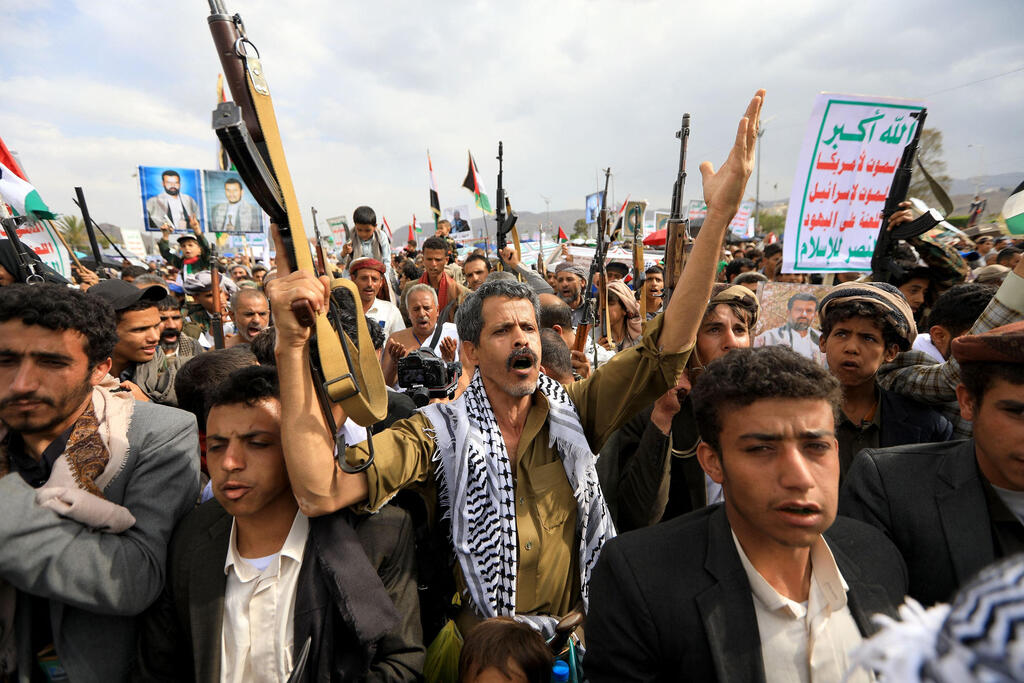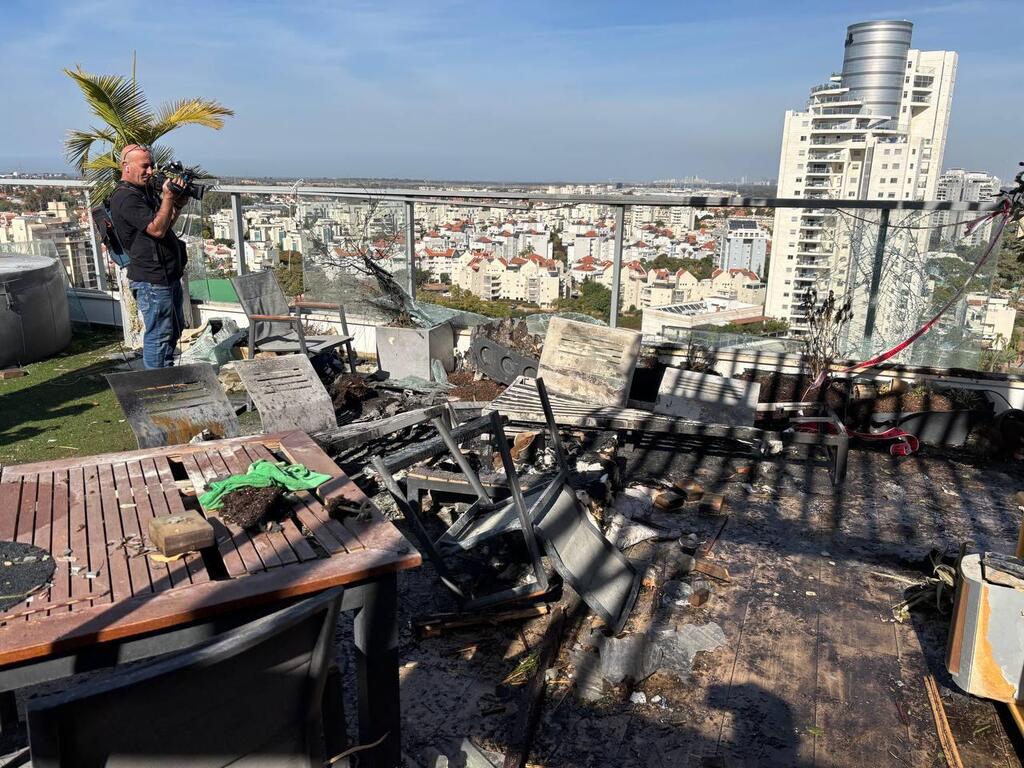Getting your Trinity Audio player ready...
Most threats are intercepted before crossing into Israeli territory, but unusual activity from Yemen has drawn attention. On Monday afternoon, air raid sirens blared across central Israel from the Shfela region to the Sharon area, sending millions of Israelis into shelters after a missile launched by Yemen’s Houthi rebels targeted the country.
The Iran-backed Houthis continue to issue threats via social media, and Israeli officials warn of a significant response: "There will be no restraint."
Yemen missile intercepted over Tel Aviv
Approximately four hours after the sirens, Houthi military spokesperson Yahya Saree claimed responsibility for the attack, stating they had fired a "Palestine-2 hypersonic ballistic missile at a military target near Jaffa."
Despite two Israeli strikes on Houthi-controlled areas in Yemen, the rebels vowed to continue supporting "our brothers in Gaza" and even increase their attacks.
Following Monday’s missile launch, Hezam al-Asad, a member of the Houthi Supreme Political Council in Yemen, posted in Hebrew on X (formerly Twitter): "The Israeli enemy will pay the price for its continued brutal aggression and siege on our people in Gaza, as well as its attacks and invasions in Syria."
He followed up with two additional tweets in Arabic, writing, "We renew our jihadist stance in support of our people in Gaza, relying on God and confident in our victory. Let the Zionist enemy and its supporters know that what is coming will be worse as long as the attacks and siege on our brothers continue."
As Houthi threats persist, Israel is treading cautiously on whether to act again in Yemen, grappling with a significant dilemma over how to respond. Sources familiar with the situation told Ynet in recent days that "targeting the Houthis is more challenging," but added that the rebels' increasingly aggressive actions could prompt a far more substantial Israeli response.
The Houthis have continued their attacks on Israel even after the cease-fire in Lebanon came into effect and have escalated their missile launches in the two-and-a-half weeks since. The first post-cease-fire missile launch occurred earlier this month, triggering sirens in the Shfela region. The Houthis claimed responsibility for firing a "Palestine-2" missile at a "vital target" near Jaffa, Tel Aviv’s historically Arab quarter.
Since the beginning of December, the Houthis have claimed responsibility for several additional operations involving drones targeting Israel.
On December 3, they announced involvement in three operations allegedly conducted in coordination with the Islamic Resistance in Iraq, a coalition of pro-Iranian militias active since the war began.
According to the Houthis, these operations occurred within 48 hours and included two drone attacks on northern Israel and another on a "vital target" near Eilat. The Houthis declared all operations "successful."
<< Get the Ynetnews app on your smartphone: Google Play: https://bit.ly/4eJ37pE | Apple App Store: https://bit.ly/3ZL7iNv >>
On December 8, a ballistic missile launched by the Houthis was intercepted outside Israeli territory. On the same day, the Houthis claimed responsibility for an operation involving drones targeting a "vital target" in southern Israel, also in coordination with the Islamic Resistance in Iraq.
That day, the Iraqi militia issued a statement condemning "Israeli aggression against Syria" and "the occupation of new villages in Quneitra and Mount Hermon."
Last Thursday, sirens sounded in southern Israel, likely due to drones launched from Yemen. An interceptor was deployed near Eilat, and a chase ensued for a drone suspected of entering the Gaza border region. However, the IDF said it investigated whether a false identification triggered the Gaza-area alerts.
Last Monday, a drone from Yemen exploded in a penthouse apartment in Yavne. While no injuries were reported, the blast caused significant damage to the 16th-floor balcony, with parts of the drone scattered near the building.
The drone approached from the sea, crossed near Sderot and then turned northward. It was detected near Ashdod, prompting electronic warfare measures. Detection lasted only a few minutes, and although a fighter jet was scrambled, the drone disappeared from radar, preventing interception.
The Houthis claimed responsibility for the "attack on a sensitive target" in Yavne and the next day took credit for "attacks on military targets" in Jaffa and Ashkelon.
In a speech during a weekly pro-Gaza demonstration in Sana’a, Yemen, last Friday, Saree claimed responsibility for additional attacks, highlighting the group's escalating launches at Israel since the start of the month.
The Houthis have vowed to continue their strikes "as long as the siege on Gaza persists," insisting that attacks on their territory, including international coalition strikes led by the U.S. and UK, will not deter them.
While some launches fail to reach Israel, the drone threat remains challenging. The drones often fly low and slowly, making them harder to detect—similar to those used by Hezbollah during months of fighting. Moreover, the lack of Israeli retaliation risks normalizing such attacks.
Although Iran’s influence has waned following the fall of Bashar Assad’s regime in Syria, the Houthis remain operational.
Sources told Ynet recently that Israel is considering a significant response against the Houthis. "There will be no restraint—they will get what they deserve. They will pay a heavy price," warned the officials.








